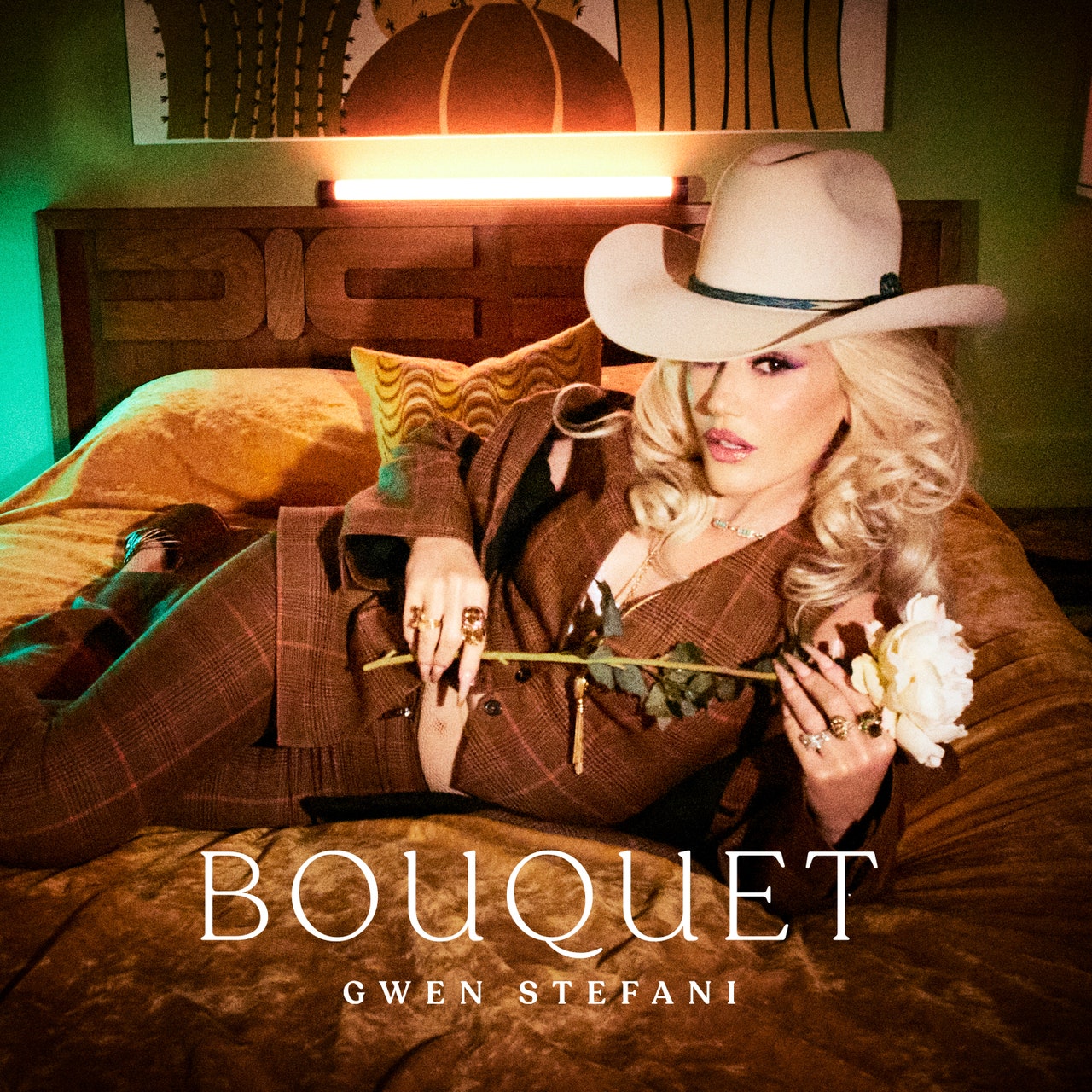It wasn’t supposed to be like this. Once upon a time, the record that would become Gwen Stefani’s fifth solo album, Bouquet, was a reggae/ska throwback to her early work with No Doubt. A few songs from that early iteration of this project came out, including the 2020 single “Let Me Reintroduce Myself,” to which the general public replied, “Nah, we’re good.” Stefani recalled sharing her lockdown-era material with people and getting no reaction. So she scrapped it and moved on. It wasn’t the first time that she’d recorded a wealth of material that she left on the shelf once the thrust of a project revealed itself—in fact, the same thing happened with her last non-holiday full-length, 2016’s This Is What the Truth Feels Like.
It wasn’t supposed to be like anything, in fact. During a recent, disarmingly honest interview, Stefani revealed that when she started writing her fifth album, she “just had no sense of who I was.” Well, the brain-wracking and soul-searching finally led Stefani to conclude that who she is, at least as far as Bouquet is concerned, is Blake Shelton’s wife. Throughout the album’s 10 songs, Stefani defines herself as a devoted partner in terms so bland that they seem straight out of Stepford. Nearly a decade into her relationship with Shelton, which began during their work together on The Voice, she’s singing about how “no one understands” them and how “I wish I met you when I was younger.”
Shelton’s mark extends beyond lyrics. According to Stefani, it was her husband’s idea to name the album Bouquet. Scott Hendricks, who has produced Shelton’s albums for more than 15 years, also helmed Bouquet and has outfitted Stefani with tasteful arrangements meant to straddle country and adult contemporary pop that instead end up in a flavorless void. This is music to shop to at HomeGoods. With a full band including keyboard player Gordon Mote and guitarist Tom Bukovac, both of whom have played on Shelton albums, Stefani recorded Bouquet’s 10 tracks in two days and had her album.
That’s exactly what it sounds like—something rushed off with meager stylistic range. Bouquet has the dynamism of an old floor fan: Its songs are either fast or slow. Truck-commercial guitars abound, drums do little more than keep time, and any flair is fleeting (a pedal-steel smear here, some slide guitar there) or turned down so low you wonder why they bothered (as with the synths). “Late to Bloom,” for example, is like “Dancing With Myself” by someone who thinks masturbation is a sin. Stefani has referred to her musical inspiration here as soft rock and Bouquet is notable for never attempting to sound youthful. The album is self-consciously “age-appropriate” in a manner that pop albums from veteran divas rarely are, perhaps its most persuasive sign that Stefani, a lightning bolt onstage, has indeed settled down. We’re left wondering where Stefani put the energy that has defined her musical output for the better part of the past three decades.
